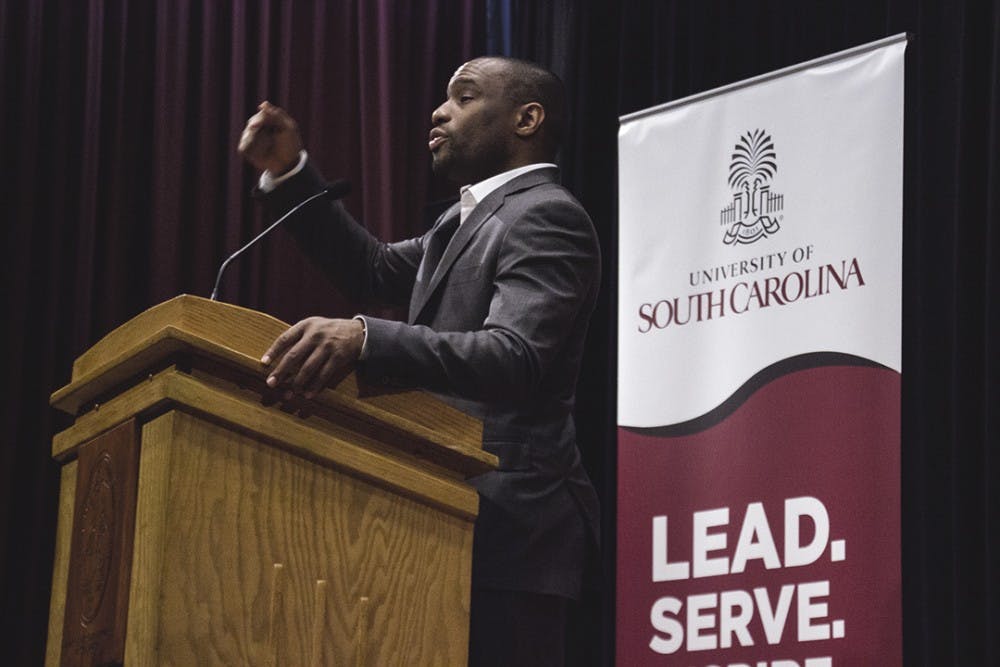Journalist, activist and distinguished professor Marc Lamont Hill discussed the effect of race on the current political landscape at his lecture titled "This Is America?" on Monday night.
Students and faculty alike showed up for the event, which was sponsored by the Leadership and Service Center. Hill focused particularly on the promises made throughout American history and how modern society fails to live up to them when it comes to racial inequality.
When discussing Martin Luther King Jr.'s famous "I Have a Dream" address, Hill said, "The speech was about promises."
He described the Emancipation Proclamation, the Declaration of Independence and the Constitution as "promissory notes," and he argued that the U.S. had not made good on some of their promises.
Hill went on to point out the occurrences in American history, such as the 13th, 14th and 15th amendments and the landmark court case Brown v. Board of Education of Topeka, that pushed the United States toward racial equality.
Throughout his speech, Hill discussed the idea of white people failing to identify with people of color simply because of race, even though poverty can affect both races just as easily. He used his experience from working at Fox News and advocating against former President George W. Bush's tax cuts to get his point across to the audience. He talked about explaining the system to members of the lower class who opposed raising taxes on upper classes even though that money would be returned to the poor.
"But we've racialized poverty in such a way that he can't see outside of that," Hill said. "He's still conditioned to think that he's one of the people giving out the money when he's the one who needs the money."
Hill also focused on the importance of having every voice heard in society and avoiding considering anyone to be "disposable." Early on in the lecture, Hill asked everyone to rise and join him in a rendition of "Lift Every Voice And Sing," which he referred to as the "black national anthem."
"We didn't make a freedom song called 'Lift Some Voices.' We didn't make a freedom song called 'Lift Black Voices,'" Hill said. "We made a freedom song called 'Lift Every Voice.' ... The idea of lift every voice is a marker for American democracy to say that the lesson of freedom, the freedom dream ... isn't for the oppressed to become oppressors. It ain't for us to get black rights and silence gay rights."
Hill emphasized this point again when he discussed the importance of listening to all people and allowing everyone to have a say in the public conversation.
"We don't want to hate the rich, and we don't want to abandon the middle class like America has for the last 30 years, but what we also don't want to do is silence or disappear the poor," Hill said. "And what we've done for the last 30 years is erase the poor from the public conversation."

